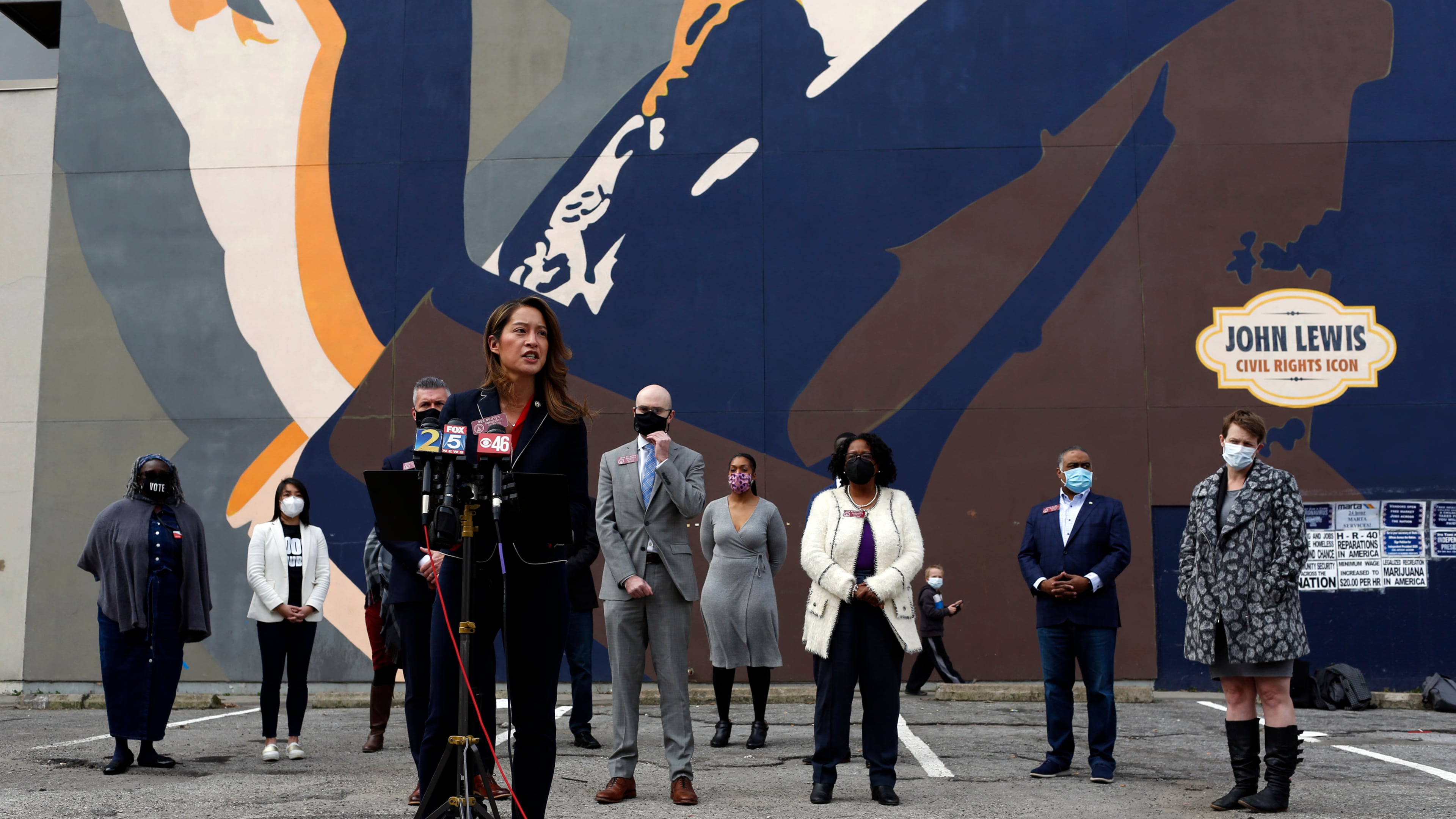Georgia Democratic lawmakers file bill that would reinstate voting rights to felons

Democratic lawmakers have filed legislation that would reinstate voting rights to Georgians who have been convicted of a felony.
The bill’s sponsor, state Rep. Josh McLaurin, an Atlanta Democrat, said the current law is rooted in racism.
“Over 200,000 of our fellow citizens in Georgia are denied (voting rights) because of a racist policy that was enacted nearly 150 years ago,” McLaurin said during a press conference held at a mural honoring the late John Lewis, a civil rights leader and former Atlanta congressman who died last year. “After the Civil War, Georgia adopted a policy of disenfranchising people convicted of felonies as a strategy to exclude Black people from participating in democracy.”
Under the Georgia Constitution, those who have been convicted of a “felony involving moral turpitude” can’t be registered to vote until their sentences are completed — including the completion of any probation, parole and payment of any fines. But the state hasn’t defined which felonies involve “moral turpitude,” and election officials interpret the state constitution to mean that all felonies limit voting rights.
The secretary of state’s office clarified its position on the issue shortly before the November election, saying that those who have completed their sentences but still owe fees, court costs and restitution are eligible to vote.
It is unlikely the measure will become law this year. A bipartisan Senate panel in 2019 studied the possibility of reinstating the voting rights of some convicted felons, who had not committed violent crimes, but the Republican members decided they wouldn’t pursue it as a committee.
“What always gets lost in these discussions is the victims of the crime,” said state Sen. Randy Robertson, a Cataula Republican and former police officer. “All we’re asking the convicted to do is just to once you complete your sentence, then your voting rights are restored in Georgia.”
Kareemah Hanifa, 43, said after serving 26 years for convictions on murder and kidnapping charges, she works two jobs, is in school and has become a community organizer for the Inner-City Muslim Action Network.
“Because I was sentenced to life in prison in 1993, I won’t vote for the rest of my life,” she said, adding that she was convicted for a crime that occurred when she was 15. “I’m out here being a taxpaying, law-abiding citizen, but I still don’t have my right to decide who is going to be my representation.”
Reenfranchisement of former felons has been hotly debated in Florida, where a federal appeals court recently ruled they’re ineligible to vote unless they’ve paid back all outstanding fines, fees and restitution.

McLaurin said he knew the chances for his proposal to be approved were slim but that it was the “morally and legally” correct thing to do. He said while opponents are going to focus on asking whether those who have committed violent crimes should be allowed to vote, he plans to flip the premise.
“They’re framing the question in a way that was handed to us, again, by racist design centuries ago,” he said. “The real question is, are these people citizens and, as citizens, do they have the right for their voice to be heard by elected officials? And the answer to that is yes.”



